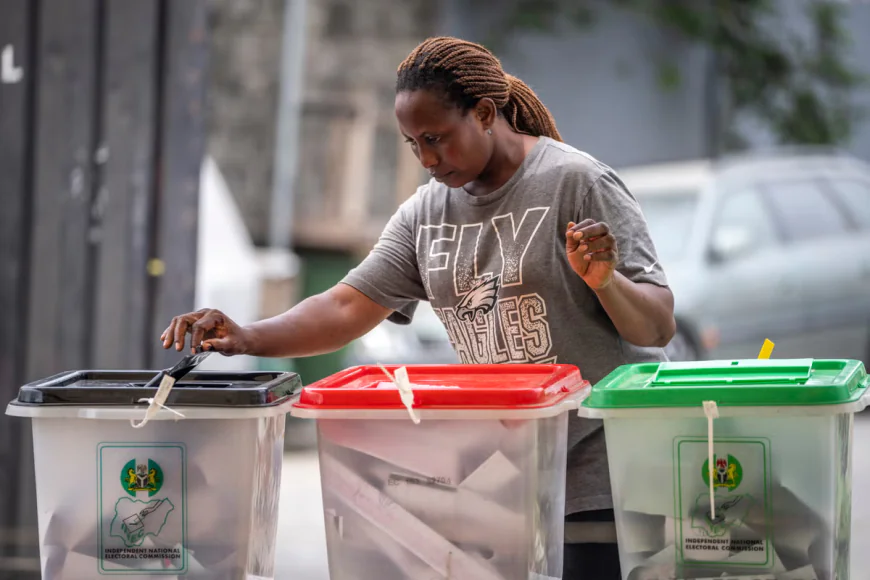Beyond the Ballot: Why Nigerians Are Losing Faith in Elections and What's Next for 2027
As Nigeria heads toward the 2027 elections, experts and stakeholders warn that voter apathy threatens democracy, urging reforms, civic education, and trust-building.

As Nigeria prepares for the 2027 general elections, stakeholders are sounding the alarm over declining voter turnout, calling it a growing threat to democratic governance, peace, and political legitimacy.
At a public forum titled "Addressing Voter Apathy in Nigeria", held in Abuja and organized by the Friedrich-Ebert-Stiftung (FES), experts called for urgent reforms, strengthened civic education, and initiatives to rebuild public trust in the electoral process.
Democracy Needs More Than Elections
Speaking at the event, Lennart Oestergaard, a representative of FES, emphasized that elections alone do not make a democracy.
“Institutions and laws are not enough—democracy thrives when citizens actively engage in daily democratic practices. If people believe their votes don't count, the entire system loses its meaning,” Oestergaard said.
He warned that voter disengagement indicates a deeper issue: a weakened connection between citizens and their government.
Peace and Unity at Risk
Dr. Joseph Ochogwu, Director General of the Institute for Peace and Conflict Resolution, added that voter apathy threatens more than electoral outcomes—it endangers peace and social unity.
Represented by Ayuba Caleb, Ochogwu linked voter disengagement to rising frustration and alienation among citizens, undermining national cohesion and Nigeria’s democratic ambitions.
“This threatens our goal of democratic leadership, a priority highlighted in President Tinubu’s foreign policy focus on democracy, development, demography, and the diaspora,” he stated.
Young and Marginalized Groups Most Affected
Benedict Chukwuma, Assistant Clerk of the House Committee on Women Affairs and Social Development, highlighted that voter apathy is especially severe among youth and marginalized communities.
“Voting isn’t just a right—it’s a civic duty. But growing disillusionment is making citizens feel their votes don’t matter,” he warned.
“If we don’t fix this problem before 2027, we risk further eroding our democracy.”
Chukwuma urged reforms to enhance transparency and fairness in elections, calling on citizens to learn, engage, and take part in the democratic process.
Root Causes of Voter Apathy
Professor Freedom Onuoha from the University of Nigeria, Nsukka, presented new research on the causes of voter apathy in Nigeria. His findings show that:
-
Widespread distrust in electoral institutions is the leading cause.
-
Political violence discourages voters, especially in conflict-prone areas.
-
Election rigging and vote-buying foster the belief that elections don’t reflect the people’s will.
-
Poor governance makes citizens lose faith in political leaders and disengage entirely.
“Insecurity is a constant fear. If people feel unsafe, they won’t go to the polls. And when results don’t reflect their votes, trust in democracy collapses,” Onuoha said.
Solutions: Security, Technology, and Civic Engagement
To tackle the crisis, Onuoha recommended:
-
Improved security throughout the electoral cycle, not just on election day.
-
Genuine electoral reforms, including transparent implementation of electronic voting and result transmission systems.
-
Robust civil society action, focusing on sustained voter education and awareness campaigns.
“Restoring trust begins with tackling insecurity and building belief in the voting process. Civil society must remain vigilant and active,” Onuoha concluded.
The Road to 2027: A Turning Point
With less than two years to the next national vote, Nigeria faces a critical test. Experts agree: if the country fails to reverse the current trend of voter apathy, the very foundation of its democracy may be weakened.
Will Nigeria take the steps needed to restore faith in its democratic system? The countdown to 2027 has already begun.


